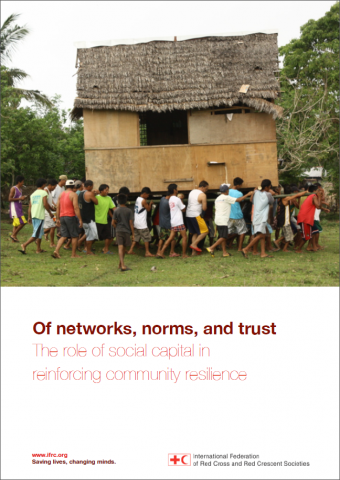Of norms, Networks, and Trust. The Role of Social Capital in Reinforcing Community Resilience


The discussion of the elements of community resilience – the question as to what characteristics a community needs to a have – is almost as old as the concept of community resilience itself. This study aims to contribute to this discussion by analyzing the role of a particular aspect: Social Capital. “Of norms, networks, and trust” finds that social capital plays a much more
fundamental role than is commonly acknowledged. Cognitive aspects such as social embeddedness, trust and propensity to civic engagement appear to be the critical foundation on which overall resilience depends.
The paper bases its analysis on recent literature and on case studies from nine communities in Nepal, China and Myanmar. A household survey amongst 888 respondents and workshops with communities and Red Cross branches represent the underlying research approach.
IFRC, 2012
